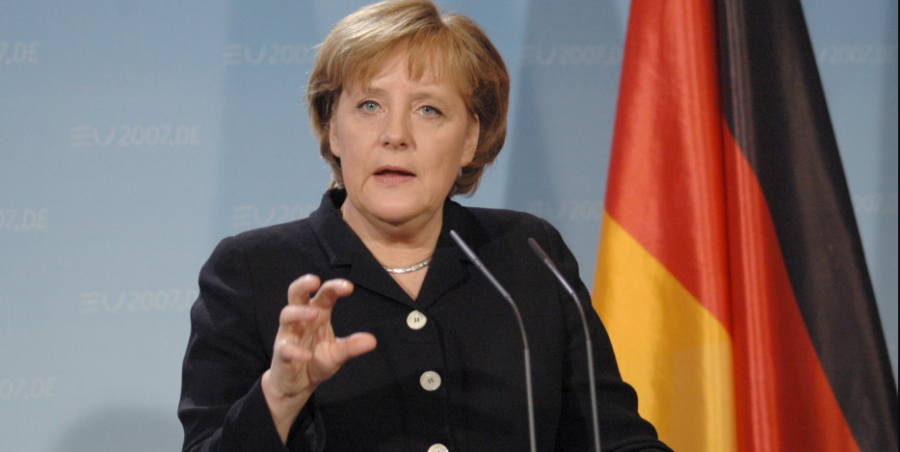Far-Right Party’s Inclusion in Parliament Signals Subtle Shift in German Government
October 18, 2017
It would be unheard of to have a U.S. president serve four terms in office, but for Germany, this has just become reality. After a September 24 vote for Bundestag, or Parliament, seats as well as for the country’s chancellor, the German public have elected Angela Merkel as their leader for a fourth consecutive term. While it seems less than surprising, this year’s election results may say a lot about the future of Germany.
Just as Democrats and Republicans dominate the U.S. political scene, Germany has two major parties: the Christian Democratic Union/Christian Social Union (CDU/CSU) and the Social Democratic Party (SPD). These parties, moderately conservative and liberal, respectively, have won the majority of seats in the Bundestag. Angela Merkel herself is part of the CDU. Other parties competing for spots include The Left, The Greens, the Free Democratic Party (FDP), and Alternative for Germany (AfD). With almost seven individual parties as well as smaller, minor parties, it becomes a difficult task to achieve a majority in the Bundestag. Therefore, many parties ally themselves with each other in groups called coalitions. Merkel’s success can easily be traced to her affiliation with the Grand Coalition, a partnership between the CDU/CSU and the SPD. For the most part, the battle of politics becomes a question of who can get the best coalition and the most seats in Parliament.
But it turns out, even with a guaranteed majority vote, the Grand Coalition can be open to weakness. With a grand total of 53.5 percent of the vote, the CDU/CSU and SPD once again are led by Angela Merkel as Chancellor. Yet there is a slight discrepancy in this year’s election. The CDU/CSU lost 8.5 percent and the SPD lost 5.2 percent since the last election, allowing for more alternate parties to get their members in. The Left and the Greens gain a small percentage, 0.6 and 0.5 percent, respectively. The FDP, a libertarian group, won 5.9 percent more compared to the last election.
Yet perhaps the most significant change in this year’s election is the rise of the AfD. Having gained 7.9 percent more votes from the last election, the AfD has gained a significant amount of support, obtaining 94 seats or nearly 13 percent of the Bundestag. It’s truly a historical moment, especially considering this is the first time a far-right leaning party has gained entrance into Parliament since the National Socialists dominated the government in 1949.
“It was surprising in some ways that [the AfD] were able to enter into Parliament with such great numbers,” said Herr Sal Veniero, German teacher at Prep.
In many ways, the results of the election greatly reflect old divides between East and West Germany, as reported by NPR, renewing old divisions dating to the days of the Iron Curtain. The AfD gains most of its support from the former region of East Germany, still experiencing a lingering shell-shock from the Cold War. Their relationship to the current German government is described by reporter Simon Shuetz as “a sentiment of estrangement.” The AfD’s involvement in governmental affairs may very well be a catalyst for great changes, just like Trump’s inauguration as president has proved for the U.S..
As far as coalitions, Merkel will likely consider forming new alliances. With the disolution of the Grand Coalition, people are left to wonder what the next big power will be.
“Given Germany’s history there’s always been a certain sensitivity around the far-right wing ideologies,” said Herr Veniero. “On the other hand 86 percent of the country did not vote for the AfD.”
The AfD is indeed still a minority in the grand scheme of German politics. A number of the other political parties have expressed great disinterest in allying themselves with the AfD or forming new coalitions with the far-right party. Their presence has surely had an impact on the people, but the Bundestag should remain mostly unhampered by the party’s presence.
In some ways, it’s unsurprising,” said Herr Veniero. “in other ways, it’s something to watch, but it won’t change the field of German politics drastically.”


